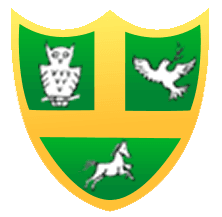MFL
Article 28: Every child has the right to an education
Intent: What we are trying to achieve in our curriculum?
We have chosen to study French in Key Stage Two. Our curriculum is designed to meet and address the needs of the children who attend our school. It is ambitious, inclusive, broad and balanced. It is designed to provide a progression of knowledge, skills and vocabulary with clear end points, at the end of key phases in school. The threads ‘Be ready, Be Respectful and Be Safe’ provide the intent of our curriculum design.
Characteristic |
What do we want to develop in our children at Kirklevington? |
What does this look like in our School? |
Be Ready |
Be Ambitious – aim high, exposure to experts and role models, challenge provided in teaching knowledge, skills and vocabulary |
|
|
Be Independent – Prepared for now, the next steps and for life |
|
|
Be Resilient – confident, develop self-regulation, well-being strategies and be problem solvers |
|
|
||
Be Respectful |
Respectful behaviours – towards ourselves, our peers and others |
|
|
Respect rights -RRSA – Understand our rights, how they affect our lives and rights of children globally, celebrating differences |
|
|
Respect the environment – our school, the community and the wider world |
|
|
||
Be Safe |
Keep ourselves safe – know how to report concerns and worries, including with friendships |
|
|
Being safe in the school and community – Knowledge about, our families, the school, the local context and wider world |
|
|
Being safe online –Using technology for the right reasons and knowing its limitations |
|
Implementation
Our MFL curriculum has been designed to progressively develop skills in French. French lessons are provided to children in Year 3, 4, 5 and 6. We currently use lessons based around the North Yorkshire Scheme of Learning for French (KS2/UKS2) and Petites Etoiles (LKS2), which have been adapted to meet the needs of our children. The planning used for taught lessons takes account of children’s previous learning and progressively builds on previous learning from units already studied. This allows children to acquire a bank of vocabulary organised around topics, which can be used and applied further as children progress through the school.
The Units taught throughout the year in each year group also provide opportunities of learning about French culture through important festivals and events within the French year.
KS1 children are introduced to MFL through exploring other languages informally when studying another country. Each year the whole school takes part in a World Languages Day.
Practical activities, songs and games are used to help improve memory and recall.
In the classroom, where possible, instructions are given in French to expose children to the language as much as possible. Visual prompts are used to support children in translating new vocabulary. Word mats/knowledge organisers are available for children to access to support their learning and recap previous learning.
Impact
Our MFL curriculum ensures that children are encouraged to understand the relevance of what they are learning in languages and how it relates to everyday life and travel. In addition, how it could help them in another country or to talk to a French speaker. Our French curriculum will ensure all pupils develop key language learning skills, as set out by the national curriculum, as well as a love of learning about other cultures.
As each year passes, units increase in level of challenge, linguistic and grammatical complexity as pupils move from Early Learning units through intermediate units and into the most challenging progressive units. Early Learning units (studied in Year 3) will start at basic noun and article level and will teach pupils how to formulate short phrases. By the time pupils reach Progressive units (Year 5 and 6) they will be exposed to much longer text and will be encouraged to formulate their own, more personalised responses based on a much wider bank of vocabulary, linguistic structures and grammatical knowledge. They will be able to create longer pieces of spoken and written language and are encouraged to use a variety of conjunctions, adverbs, adjectives, opinions and justifications. Children’s work is recorded in a designated French book, which stays with the child as they progress through the Key Stage. This allows progress to be noted from the very start of their learning at the beginning of KS2, to their final learning in Year 6. Assessment is carried out informally within lessons to inform planning for future lessons and children are given verbal feedback when carrying out verbal based speech work within the classroom as well as though pre learning assessments and post learning assessments for each unit. Examples of children’s verbal progression is also recorded within the online learning platform Seesaw.

